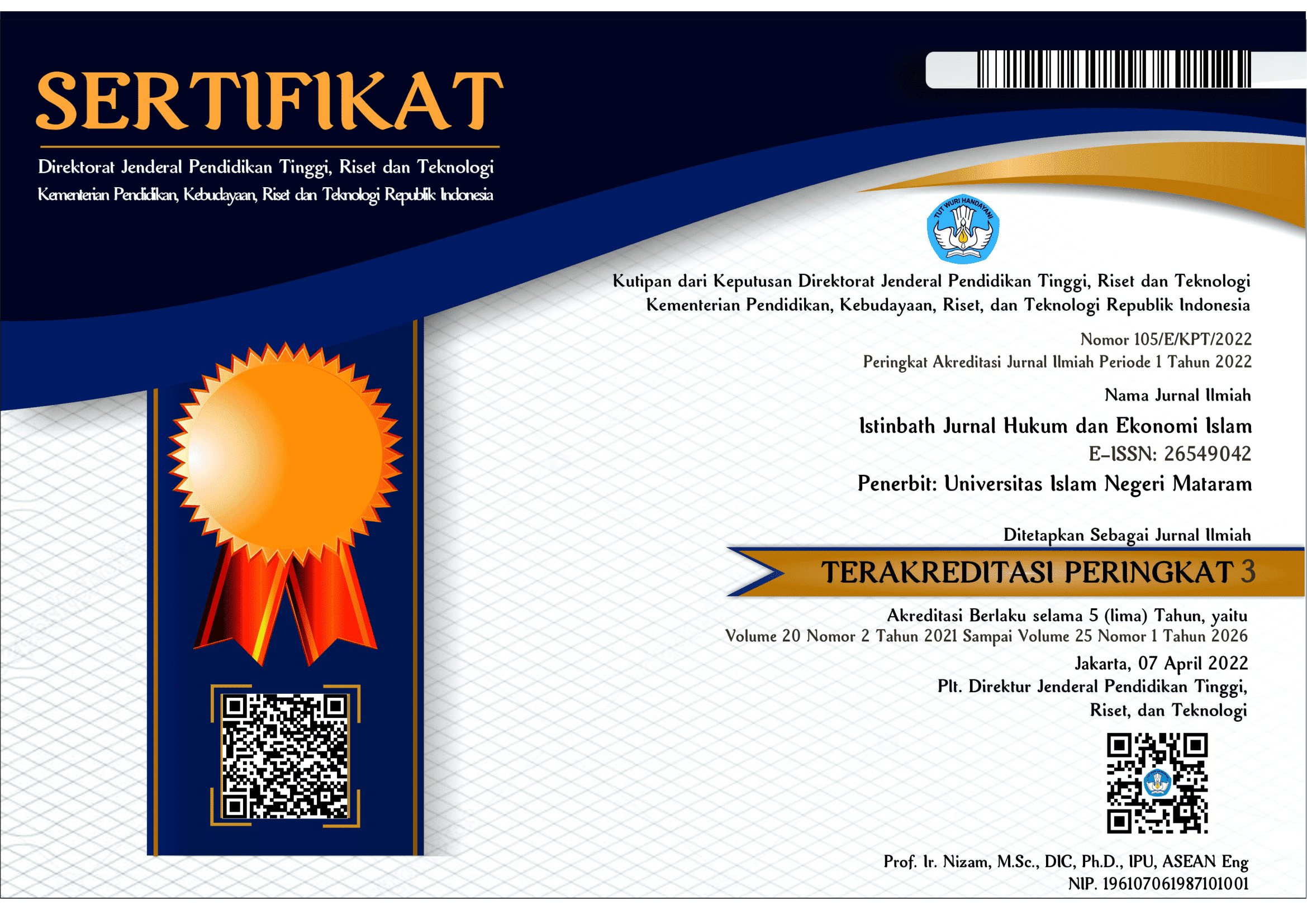SONGKET SUBHANALE WEAVING PRODUCTIVITY IN FORMING THE ECONOMIC INDEPENDENCE OF SASAK WOMEN
DOI:
https://doi.org/10.20414/ijhi.v20i2.385Keywords:
productivity, women weavers, economic independenceAbstract
Research on the productivity of Songket Subhanale weaving in forming Sasak women’s Economic Independence was carried out because of the researchers’ interest in the reality of weaving culture in Sukarara, Central Lombok. Sukarara Village is one of the villages that is still sustainable in carrying out the authentic traditions of Sasak culture. One of them is the culture of weaving in the Sasak term “nyesek” which is done manually by hand and simple tools but has economic value and the output has a high selling potential. The above reality is scientifically studied through qualitative research with an ethnographic approach to obtain definite and academically accountable answers. Qualitative ethnographic research provides an opportunity to examine holistically and specifically, related to the behavior, attitudes and characters inherent in the weavers in their daily activities. The findings in this study refer to two things as formulated in the research problem formulation, namely: 1) The productivity of Muslim songket weavers in Sukarara in carrying out their profession as songket weavers, they are very productive, this is illustrated through several indicators, namely: increased results achieved, ability doing the job, morale, self-development, quality / quality, efficiency, and effectiveness. 2) The implications of work ethic and productivity on the economic independence of Muslim songket weavers in Sukarara have been realized through several indicators, namely: working capitalists, breadwinners/family breadwinners, having confidence in business, able to manage finances, mentally prepared for financial disturbances, creative and initiative , and partners/husbands in synergy by prioritizing mutual respect between each other and having a commitment to complement each other.
References
Shafiyyurrahman, al-Mubarakfuri, al-Rahiq al-Makhtum, (Beirut, Dar al-Hilal,
1422 H
Al-Qur’an dan Terjemahannya, Wakaf dari dua pelayan Tanah Suci Raja Abdullah
Bin Adul Aziz Sa’ud, 277.
Anne Marie Goetz, ‘Gender Justice Citizenship and Entitlement, dalam Maitrayee
Mukhopadhyay and Navsharan Singh (ed)., Gender Justice Citizenship and
Development (New Delhi, International Development Research Centre; 2007).
Dyah Prbasari Kusumaning Putri Sri Lestari, “Pembagian Peran dalam Rumah
Tangga pada Pasangan Suami Istri Jawa,” Jurnal Fakultas Psikologi Universitas
Muhammadiyah Surakarta, (2014), 5.
Elizabeth Washbrook, “Explaining the Gender Division of Labour: The Role of the
Gender Wage Gap,” n.d., 89
.Elizabeth Martyn, The Women’s Movement in the Post Colonial Indonesia, (New
York, Routledge; 2005).
Euis Amalia, Revitalisasi Makna Perjuangan Perempuan Untuk Ketahanan Ekonomi
Keluarga dalam Menghadapi Covid-19. Artikel Perempuan dan Ekonomi, UIN
Syarif Hidayatullah Jakarta, April 2020, 2.
Faqih, Aunur Rohim, Bimbingan dan Konseling dalam Islam, Yogyakarta: UII Press,
2001
Fattah Hanurawan, Metode Penelitian Kualitatif Untuk Ilmu Psikologi, Jakarta: Raja
Grafindo Persada. 2016
Hamzah Ya’qub, “Etos Kerja Islami”, Jakarta: CV Pedoman Ilmu Jaya, 1992
Haris Herdiansyah, Metodologi Pnelitian Kualitatif
Husaini Usman dan Purnomo Setiady Akbar, Metodologi Penelitian Sosial
Irving H. Siegel, Work ethic and productivity. The work ethic A critical analysis, 1983
Amanda Ellis, Gender and Economic Growth in Tanzania, (Washington, World
Bank; 2007).
Janet Henshall Momsen, Gender and development, (London, Rotledge; 2004)
Moleong, Mentodologi Penelitian Kualitatif
Nur Chamid, Jejak Langkah Sejarah Pemikiran Ekonomi Islam, Yogyakarta: Pustaka
Pelajar, 2010
Richard A. Lippa, Gender Nature and Nurture, (New Jersey, Lawrence Erlbaum
Associates: 2005).
Sugiyono, Metode Penelitian Manajemen Pendektatan: Kuantitatif, Kualitatif,
Kombinasi (Mixed Methods), Penelitian Tindakan (Action Research), Pnenelitian
Evaluasi, Bandung: Alfabeta, 2016
Suwardi Endraswara, Metodologi Penelitian Kebudyaan
UN-Habitat, Muslim Women and Property, dalam Islam, Land and Property Research
Series, Nairobi: UN-Habitat, 2005





